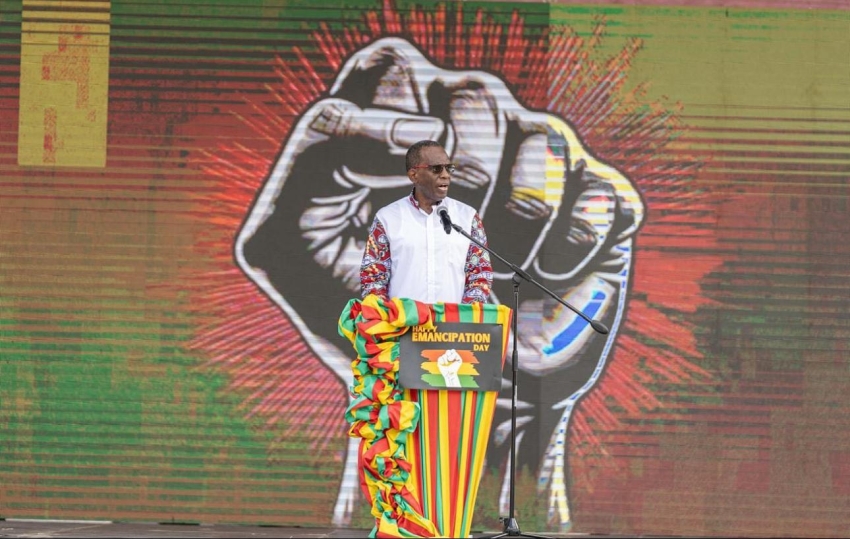In an era defined by global realignments, Pierre’s Afro-centric vision has elevated the importance of cultural identity, historical justice, and international solidarity with Africa. His leadership has marked a renewed and intentional shift in foreign policy—one that not only looks east and west, but back to the ancestral south, toward the cradle of civilization: Africa.
From the early days of his administration, Prime Minister Pierre made it clear that strengthening ties with Africa would not be a symbolic gesture, but a substantive strategy of engagement. His government has taken concrete steps to forge bilateral relationships with African nations, notably through the establishment and expansion of diplomatic ties with countries such as Ghana, Sierra Leone, and Ivory Coast. Under his leadership, Saint Lucia appointed its first High Commissioner to the African Union—an unprecedented move that signaled a serious commitment to long-term collaboration and mutual development.
Pierre’s Afro-centric vision is rooted in a deep understanding of the shared histories and cultural affinities between the Caribbean and Africa. It is also informed by a political philosophy that sees Black identity not as a peripheral element, but as a central force in shaping the destiny of post-colonial nations. In numerous speeches, he has called for “a return to the source,” advocating for Saint Lucians to embrace their African heritage with pride and purpose. He has described Africa not as a distant continent, but as a familial space—“the motherland”—from which Caribbean civilization draws its soul and resilience.
This conviction has manifested in both cultural and political realms. Pierre has supported initiatives that promote African culture, music, and fashion within Saint Lucia, while also championing economic cooperation, trade, and technology exchanges with African partners. He has spoken forcefully about the need for South-South cooperation, rooted in equity and mutual respect, as an antidote to the exploitative legacies of colonialism and the asymmetries of global capitalism.
Under his administration, Saint Lucia has also joined the chorus of nations calling for reparations for the transatlantic slave trade. Pierre has consistently used his platform—locally, regionally, and internationally—to advocate for justice and redress. His government’s vocal support for the CARICOM Reparations Commission aligns with his broader ideological commitment to restoring dignity to African-descended peoples across the diaspora.
Beyond policy, Prime Minister Pierre’s personal identity and leadership style resonate with Afro-centric values. He is widely regarded as a leader who walks with humility, speaks with cultural depth, and governs with a profound sense of historical consciousness. His frequent references to African philosophers, Pan-African thinkers, and Black liberation leaders position him as a bridge between the struggles of the past and the aspirations of the future.
In this light, history will likely remember Philip J. Pierre as the first Prime Minister of Saint Lucia to systematically and deliberately re-anchor the nation’s diplomatic compass toward Africa. His efforts are not just political acts, but a reclamation of identity—an affirmation that Saint Lucia is not only a Caribbean nation, but also an African-descended people with a rightful place in the global African family.
In the words of Pierre himself: “We must never forget where we came from. Africa is not only our past—it is our future. The connections we build today will empower our children tomorrow.”
Indeed, in the legacy of Philip J. Pierre, Saint Lucia finds not just a political leader, but a visionary Afro-Caribbean statesman—a son of the diaspora who dared to look to the motherland and bring it closer to home.
By Caribbean Writers
